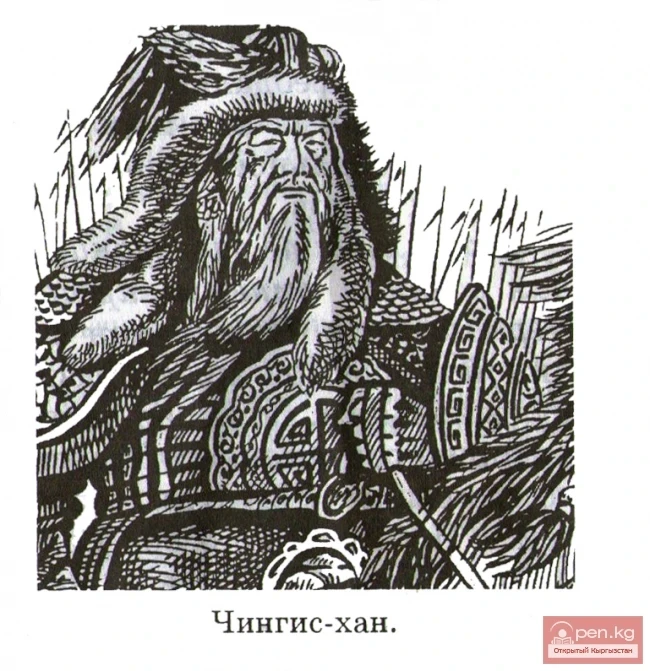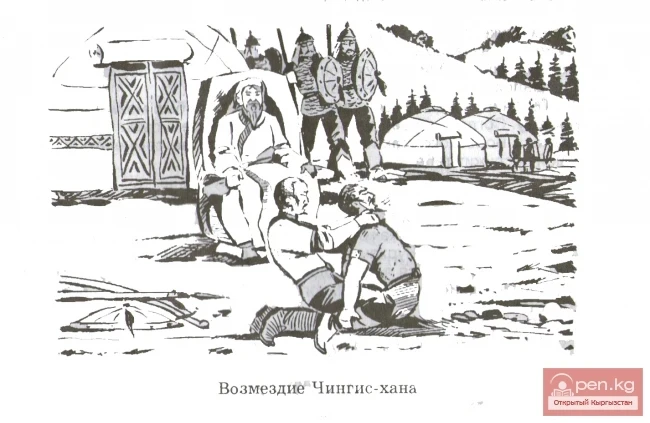The Conquest Campaigns of Genghis Khan
The First Conquests of Genghis Khan.
In the 12th and 13th centuries, on the vast territory of Mongolia, Genghis Khan and his successors created a powerful empire of nomads. The numerous and well-trained armies of the Mongols, spreading fear and terror, conquered Southern Siberia, Central Asia, and part of Europe from the 13th century to the 14th and 15th centuries. The Mongol yoke had a negative impact on the historical fate and development of many peoples, including the Kyrgyz.
The first to be attacked by the Mongol hordes in 1206-1207 were the peoples of Southern Siberia and the Kyrgyz of Yenisei. In 1218, the Kyrgyz of Yenisei rose up against the invaders but were defeated. Despite this, the people continued to resist. The Mongols then began forcibly relocating the defiant from their ancestral lands. By the end of the 13th century, part of the Kyrgyz of Yenisei was resettled to Manchuria.
The Enslavement of Central Asia.
In 1219, the Mongol troops, led by the commander Jebe, arrived in Semirechye and, taking advantage of the discontent of the local population with the rule of the Naymans, captured the city of Balasagun. The army of the Nayman ruler Kuchluk was defeated, and he fled from the Mongol pursuit to the foothills of Pamir, but was caught and killed. The conquest of Semirechye opened the way for the Mongols into Central Asia — to the possessions of Khorezm Shah.
Having easily captured Semirechye, the Mongols encountered increasing resistance as they advanced deeper into Central Asia. The trading city of Otrar was taken only after a six-month siege. The capture of the cities of Sygnaq, Sayram, Bukhara, Samarkand, Urgench, and others was accompanied by fierce battles.
However, the superiority of forces was on the side of the conquerors. This was facilitated by excellent organization, iron discipline among the warriors, good armament, and the presence of siege and stone-throwing machines. Numerous Mongol troops instilled fear in the people and the military detachments of fragmented feudal possessions.
The invasion of the Mongols in Semirechye and Central Asia was marked by brutality. The peaceful population of the conquered territories was often subjected to extermination. Thousands of people were taken into slavery. The survivors were for many years under the merciless yoke: the oppressors forcibly seized their property, forced them to pay exorbitant tribute, and under the threat of death compelled them to work for them.
The Mongols, whose traditional way of life was nomadic cattle breeding, could not understand and appreciate the role of settled life and agriculture, the significance of the achievements of urban civilization and cultural monuments.
Therefore, plundering and devastating everything in their path, the Mongols destroyed the economy that had developed over centuries among the peoples. Flourishing cities and villages were completely devastated. Irrigation canals, religious shrines, and temples were destroyed.
The enormous, irreparable human losses during the conquest wars were also suffered by the Mongolian people. But even this could not stop Genghis Khan and his associates, who pursued the goal of profit and expansion of their possessions at the expense of conquering new fertile lands.
The French ambassador W. Rubruck, who passed through Semirechye to Mongolia in 1253, wrote: “In the aforementioned fertile lands, there used to be many cities, but most of them were destroyed by the Tatars (Mongols) to turn them into pastures for their herds.”
After the establishment of Mongol rule, the dominant part of the Kyrgyz feudal nobility came closer to the Mongolian rulers, while the masses of the people, along with other peoples of Central Asia, suffered under the heavy oppression of the Mongol khans.
As a result of Genghis Khan's conquests, a vast military empire was created, stretching from the Pacific Ocean to the Black Sea. Genghis Khan considered this territory his personal fief and divided it into ulus (possessions) among his sons during his lifetime. The larger part of Central Asia, including the territory of modern Kyrgyzstan, fell into the possession of his second son — Chagatai, while the lands of the Kyrgyz between the Yenisei and Irtysh rivers and up to Lake Balkhash were included in the possessions of his third son — Ugedei. After the death of Genghis Khan, Ugedei was declared his successor — the great khan.
The Retribution of Genghis Khan.
Silence surrounds. Fear has crept into Temujin's soul. That’s it. Now he has no other choice but to step over the abyss.
He would not have dared to do this before. What will happen next - it’s hard to say. But he knows exactly what will happen if he does not take this step and retreats. Then his power, like a raging mountain stream, will dry up, flow away like kumys from a leaky skin. Suppressing his fear, he said in a hoarse voice:
- Your curse will not fall upon my head. I am not guilty even of a small drop of blood of my kin. - This sounded like a justification, he suddenly became furious, screamed piercingly: - But you must die! You will die! Take them, wrap them in felt!
Such a cruel sentence stunned everyone. But Temujin was impatient; he urged the bewildered, frozen like stone, nukhurs. It seemed an eternity had passed. Finally, the felts were spread out. The struggling, spitting, cursing Sachabek was wrapped with difficulty. Taichi himself approached and lay on the felt, looking at the sky. Tears streamed down his dusty face. Finally, both were wrapped in felt.
Like the severed parts of a giant monster, the wrapped felts jerk on the ground. Temujin's mother ran up, clinging to his sleeve:
- Don’t do this, son! Let them go!
He freed himself from his mother's hands, stood up to stretch his numb legs from sitting too long, and stepped aside, toward the yurts. Three days later, Boro-Boko himself appeared with two nukhurs. As soon as he heard about Sachabek and Taichi, he rushed to run with the nukhurs, but they were intercepted, brought, and made to kneel before Temujin. One of the nukhurs - a tall, middle-aged man, the other turned out to be a young man, but his eyes burned with courage.
- Khan Temujin, - the elder addressed him. - Boro-Boko was my lord. I served him. I agree, kill me, but do not kill my son Mukhaly. Just as I faithfully served Boro-Boko, he will serve you with all his heart, you can be sure of that.
- I do not punish a man for faithful service. It does not matter whether he is an enemy or a friend, the main thing is that he served honestly and his intentions were sincere. You are free. And what do you say, Boro-Boko, who plotted evil against your khan?
- Spare me, Khan Temujin! Like a wolf separated from the pack, I roamed, naked and hungry, through the nooks of Burkhan-Khaldun.
You separated me from my children, nukhurs, and property. I am left all alone. Here I have come to you, bowing my lonely head before you. Whether I am guilty or not, forgive me. Do not destroy me like Sachabek, Taichi!
Boro-Boko's head, with small ears seemingly glued to his skull, trembles as he bows incessantly, his mighty heroic body shakes, thick arms press against the felt, he is all in anticipation. A strongman with a bull’s neck and powerful thighs, but with a cowardly heart and a rabbit's soul.
- I will not kill you like them. You loved to wrestle. Here is our Belkutuy who dreams of wrestling. Well, let’s see who is stronger.
The wrestling match was arranged in front of the yurts. According to custom, they circled each other, spreading their arms, then grappled. Boro-Boko looks more powerful compared to Belkutuy. But his movements are stiff; there is no fire in him now. Not attacking himself, he dodges the grip, avoiding the fight. Usually unflappable Belkutuy, noticing this, rushed forward like a bull and did not let Boro-Boko escape this time. Now the struggle began. Through the torn clothing, Boro-Boko's shoulders and chest became visible, appearing even more powerful. Belkutuy squeezed Boro-Boko in an iron grip and threw him face down on the green grass. Sitting on him from above, Belkutuy looked at his brother. Temujin only bit his lip and winked, but that was enough for him to understand everything. Kneeling on Boro-Boko's lower back, he firmly grasped his shoulders with both hands and pulled upwards: the spine cracked, and Boro-Boko convulsed in his death throes. In the last moment of his life, he managed to raise his blood-filled eyes, bulging from their sockets, to Temujin and whispered:
- Good journey to you!..
These words were not a repentance, not a curse; they carried some other, deeper meaning. Temujin suddenly found it hard to breathe, as if someone had grabbed him by the throat. Jumping onto one of the horses standing by the tether, he galloped into the open field. Opening his mouth, deeply inhaling the wind hitting his face, he raced forward. The nukhurs galloped after him.
Stopping, he waved his hand to send them back, while he rode on. Climbing to the ridge of the mountain, he dismounted, loosened his belt, and took off his tebetey. Oh God, do not let me go mad... do not let me stray from the straight path... do not deprive me of strength and courage...
High in the sky, sadly trumpeting, two cranes fly after each other. “Good journey to you!” - these words stuck in his ears like a nail, pricking his brain. Even the death cries of Sachabek and the silent submission of Taichi did not touch him so deeply. But the words of the fool Boro-Boko make him doubt the correctness of his actions. But the deed is done; just as it is impossible to bring back the lives of Sachabek, Taichi, Boro-Boko, it is also impossible to stray from the destined path. And it is not possible.
Read also:
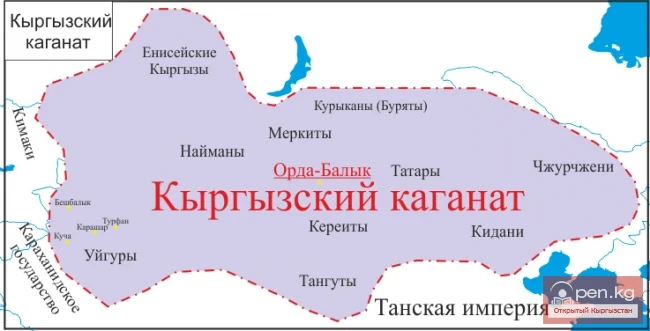
The Territory of the Kyrgyz in the VI—XVIII Centuries
All political entities of the Middle Ages in the territory of Central Asia somehow affected the...
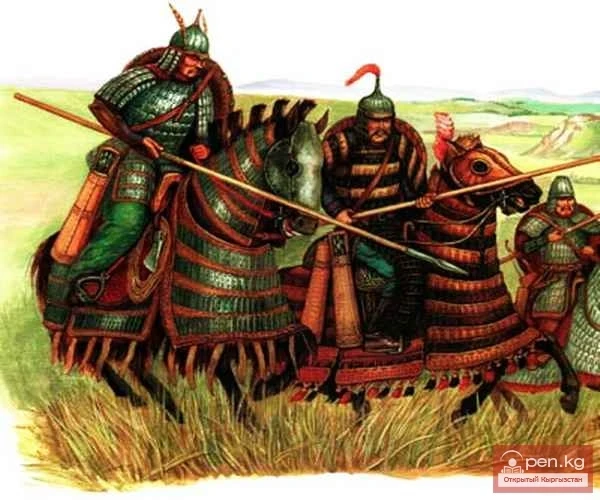
Military Forces of the Kyrgyz in the 6th to 18th Centuries
The structure, organization, and supply of the armed forces of the Kyrgyz during that period were...
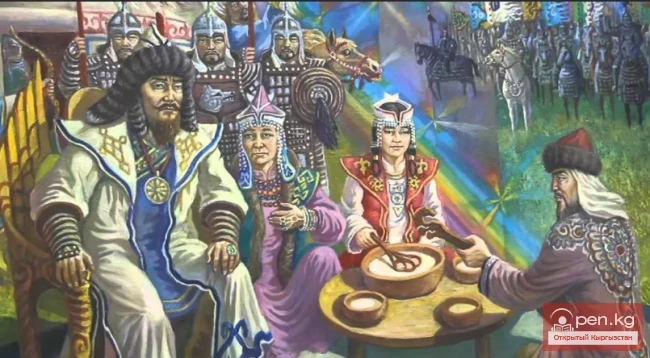
Social and Economic Development of Mogulistan
Social and Economic Development of Mogulistan There is very little information in written sources...
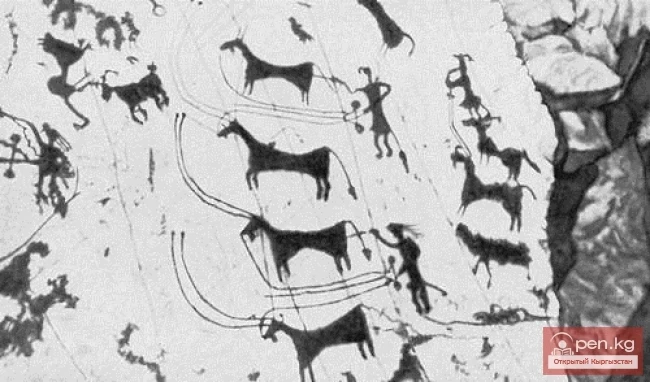
Ancient Kyrgyz — the Earliest West Turkic Tribes
Ancient People — Kyrgyz The Kyrgyz, whose roots go deep into antiquity, lost in the darkness of...
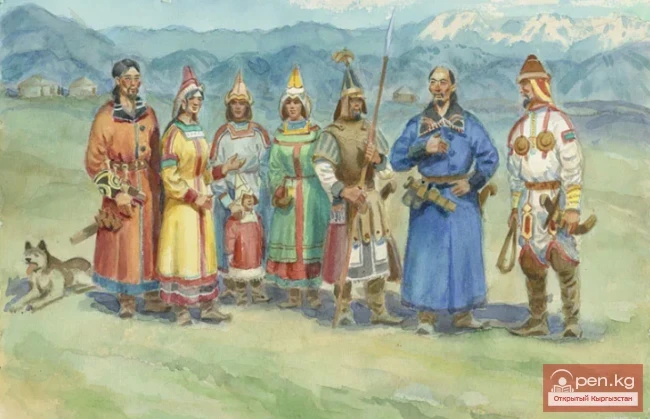
Kyrgyz
Kyrgyz K. A. Pishulina rightly points out that only those tribes and clans that participated in...
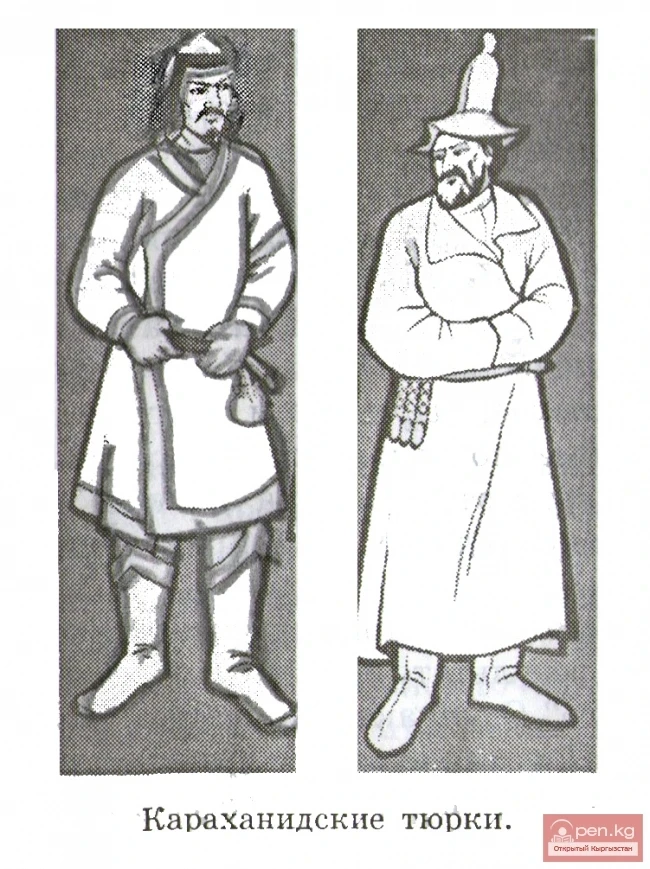
The State of the Karakhanids (940—1212)
Karakhanid State (940—1212 years). From the mid-10th century to the early 13th century, the Turkic...
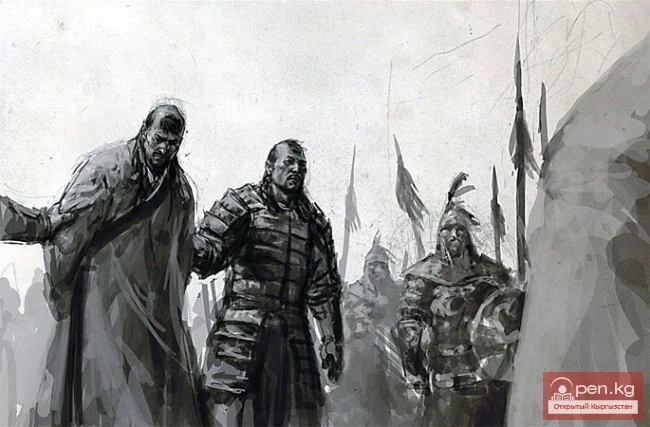
The Geopolitical Environment of the Kyrgyz Before the 6th Century
Since the Sakas did not have a centralized state, they did not conduct a specific foreign policy....
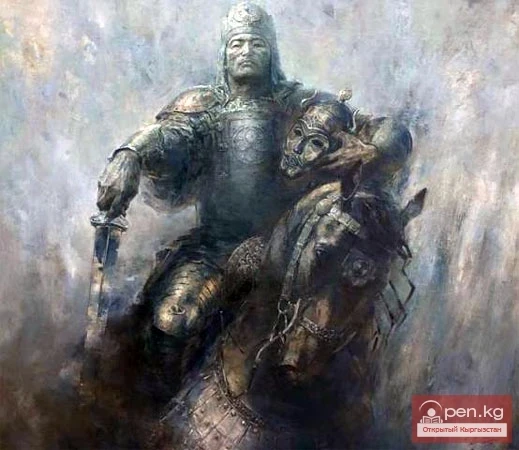
Military Forces of the Kyrgyz from Ancient Times to the 6th Century
The military art that prevailed during the ancient and medieval periods among the nomadic tribes...
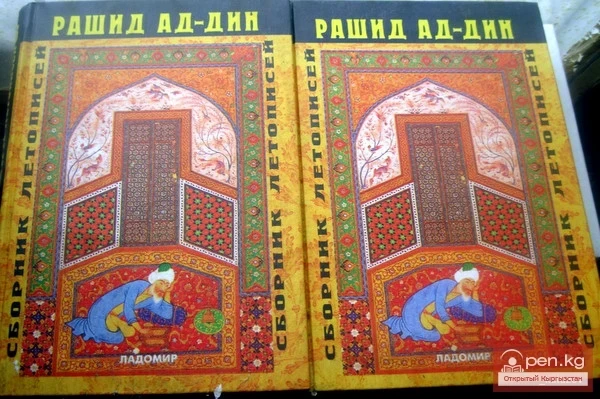
The Collection of Chronicles of Rashid ad-Din
Rashid ad-Din. Collection of Chronicles. Vol. I. M.-L., 1952 Rashid ad-Din (1247—1318) was the...
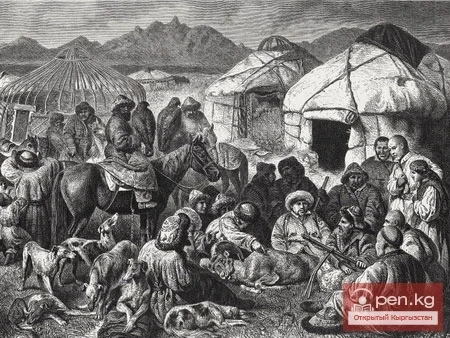
Population of Kyrgyzstan from Ancient Times to the 6th Century
The first reliable traces of humans on the territory of Kyrgyzstan date back to the Paleolithic —...
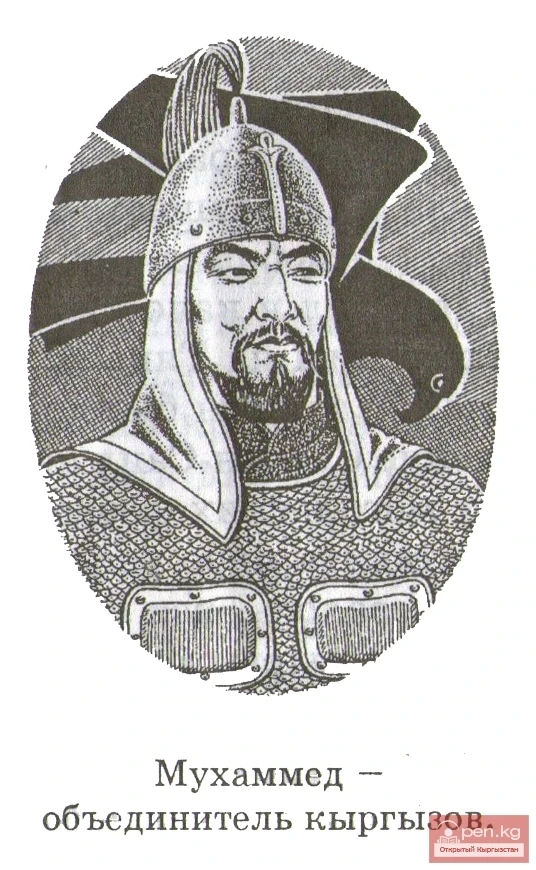
Muhammad Kyrgyz
The situation in Central Asia. In the early 16th century, feudal fragmentation intensified not...
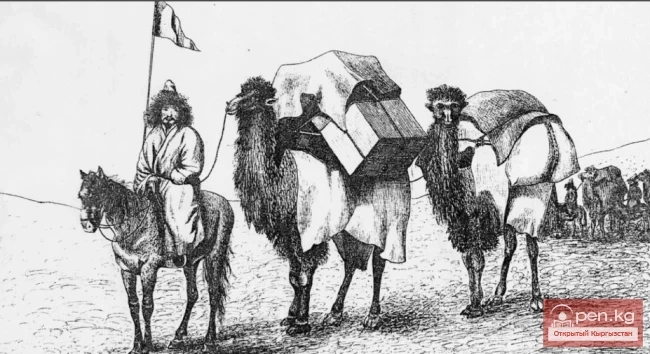
Ethnopolitical Connections of the Altai Kyrgyz in the 13th to 15th Centuries
Movement of the Altai Kyrgyz to the Western Regions of Mogolistan In the study of the...

The Legend of the Issyk-Kul "Atlantis"
WORD ABOUT THE TREASURES OF THE KYRGYZ "ATLANTIS" From the 3rd to the 6th centuries,...
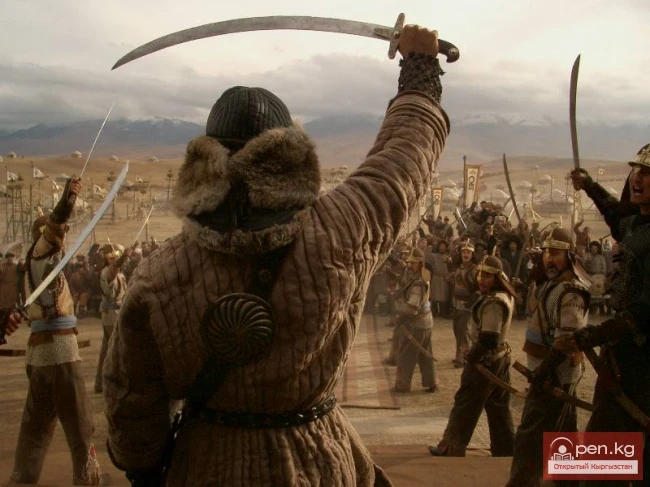
The Population of Kyrgyzstan in the VI—XVIII Centuries
The ethnonyms “Turk” and “Turkut” were first mentioned in a Chinese chronicle from the year 546....
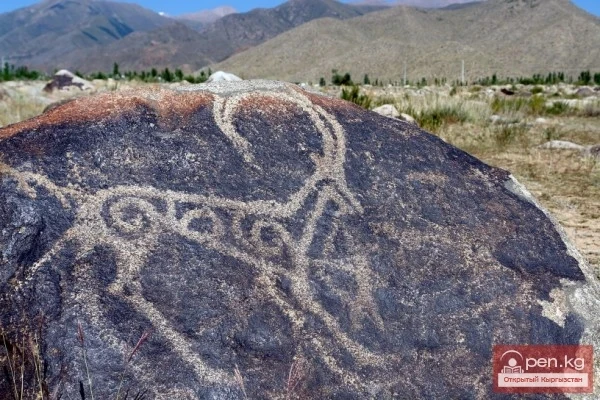
The Religion of the Kyrgyz in the VI—XVIII Centuries
Alongside Islam, the life of the Kyrgyz was widely influenced by customs and traditions of...
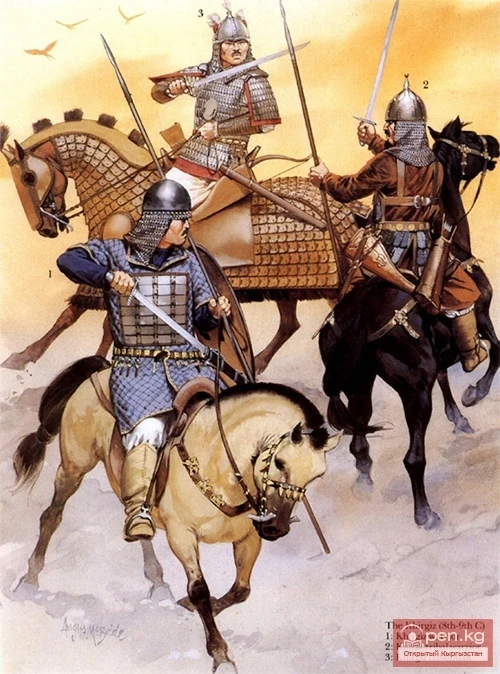
The Geopolitical Environment of the Kyrgyz in the 6th—18th Centuries
The Turkic states pursued an active foreign policy and participated in geopolitical games in the...
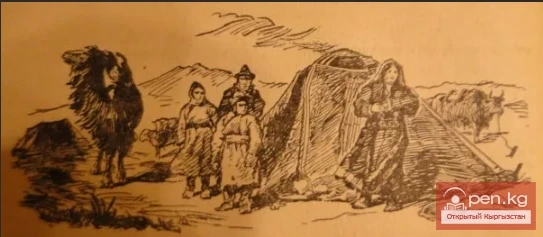
Disputes about the Resettlement of Kyrgyz from Yenisei to Tian Shan
How did the Kyrgyz appear in Tian Shan? A special place in the study of the monuments of oral folk...

Popular Movements in Central Asia in the 19th Century
The Kyrgyz people, defending their freedom and land, alongside other peoples of Eastern Tian Shan...
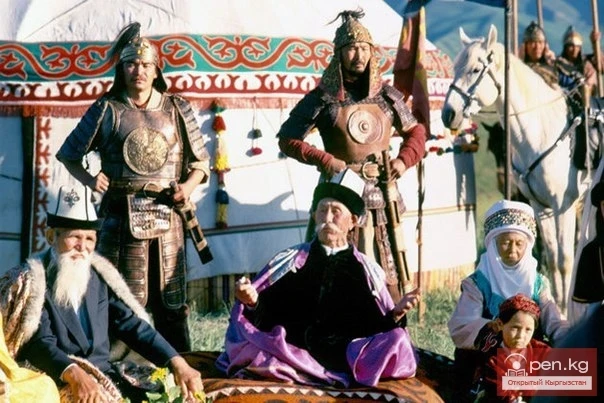
Governance in Kyrgyzstan in the 6th—18th Centuries
The second half of the first millennium is characterized by the formation and development of early...
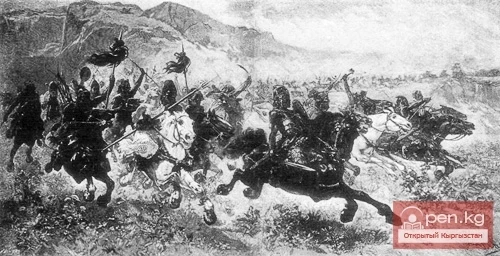
Military Forces of the Kyrgyz in the 18th - Early 20th Century
Since the Kyrgyz did not have their own state formation during the period in question, there is no...
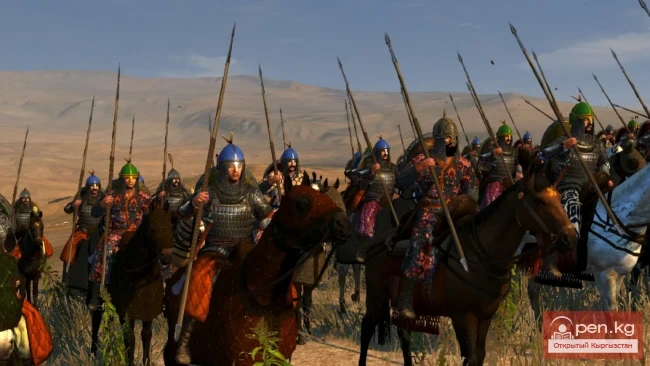
Population of Mogulistan
Arkanuts, Arlats, Barlasses The problem being studied is one of the complex and poorly researched...
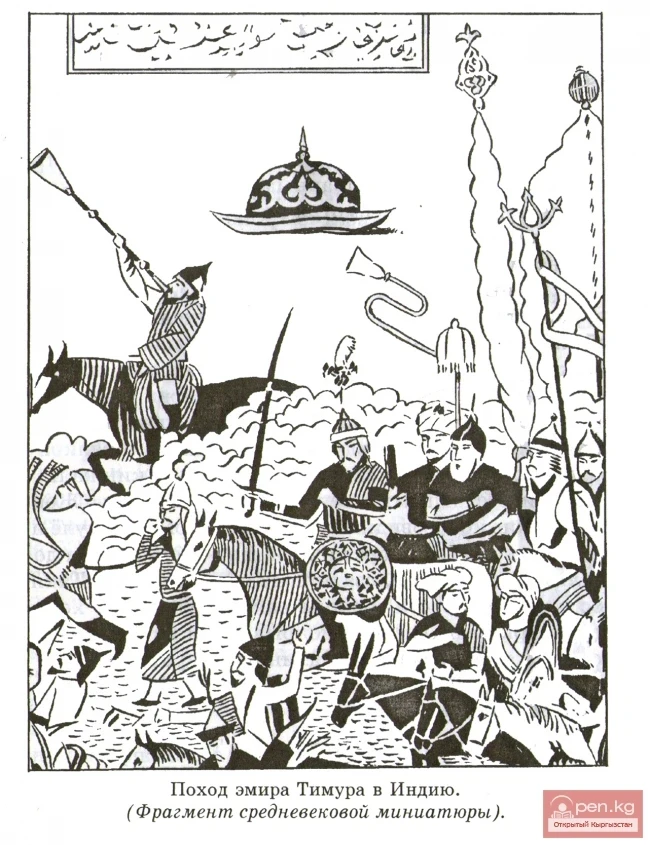
The State of Timur's Emirate
Foundation of the Great State. In the 1370s, a powerful state was established in Central Asia...
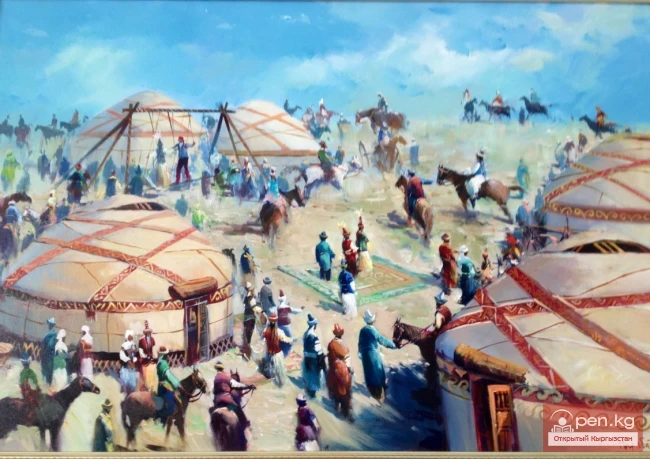
Kyrgyz in the "Collection of Chronicles"
Rashid ad-Din on the "Kyrgyz Tribe" According to Rashid ad-Din's information about...

The Territory of the Kyrgyz in the 18th to Early 20th Century
During the period under consideration, the Kyrgyz population occupied approximately the same part...
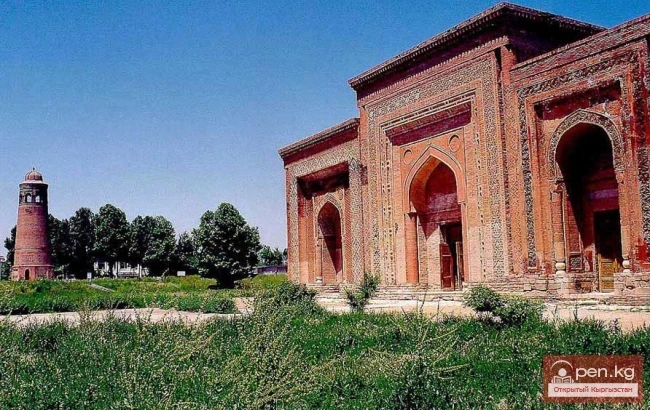
Historical and Architectural Complex of Uzgen
The city of Uzgen was founded in the 8th-9th centuries on a steep terrace of the Kara-Darya River....
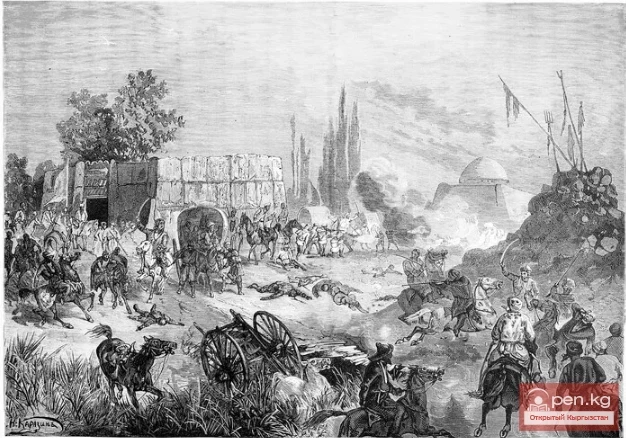
Uprisings of the Kyrgyz from 1845 to 1848 Against the Kokand Khanate
Uprisings of the Kyrgyz against the Kokand Khanate The internecine feudal struggle between the...
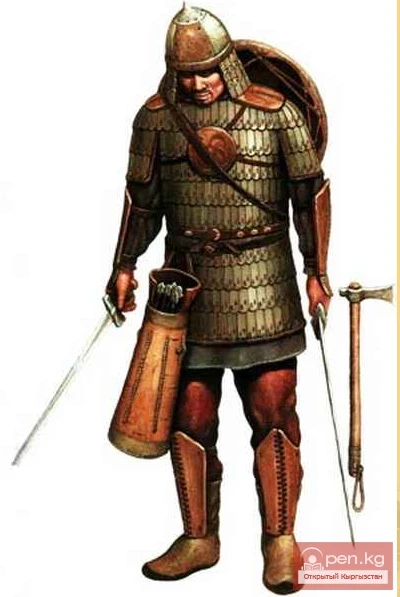
The Yenisei Kyrgyz in Antiquity
Kyrgyz-Gyangu The earliest mention of the Kyrgyz under the Chinese name “gyan-gun”, “heguni”, or...
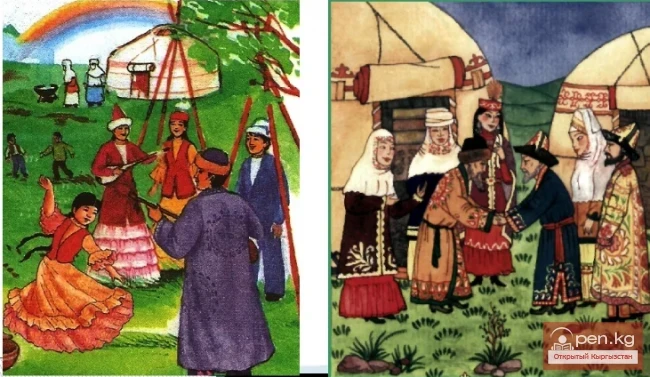
The Role of the Moghulistan State in the Formation of the Kyrgyz People
Formation of the Kyrgyz People The Kyrgyz people were formed on the basis of two ethnic masses:...
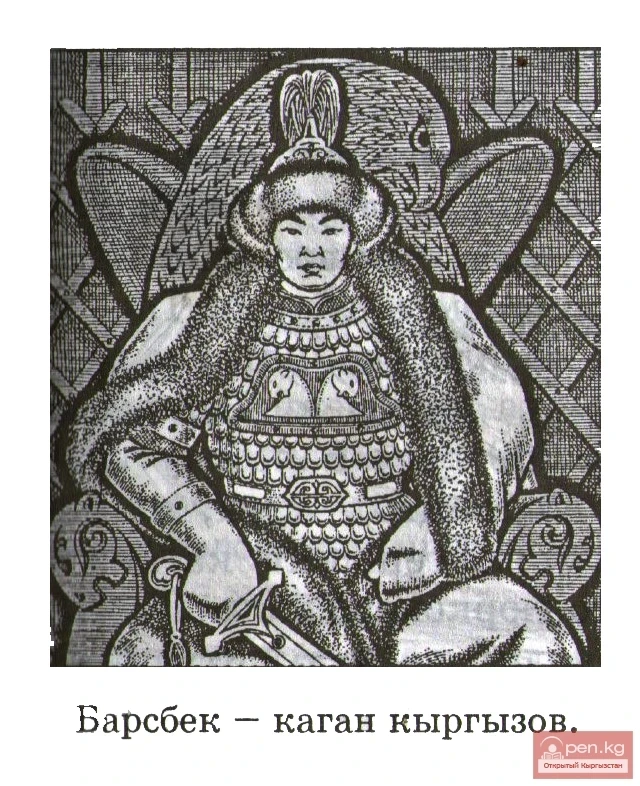
The Great Power of the Kyrgyz: Barsbek-Kagan
Kagan Barsbek. Central Asia at the end of the 7th century became the arena of significant...
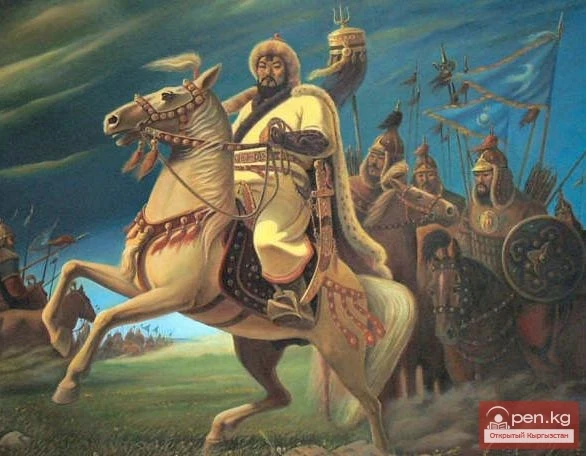
Kara-Kyrgyz and Balasagun
Balasagun One of the capitals of the Karakhanid state was the city of Balasagun, located in the...

The Territory of the Kyrgyz from Ancient Times to the 6th Century
The Saka tribes were divided into three parts. In the southern regions of Kyrgyzstan lived the...
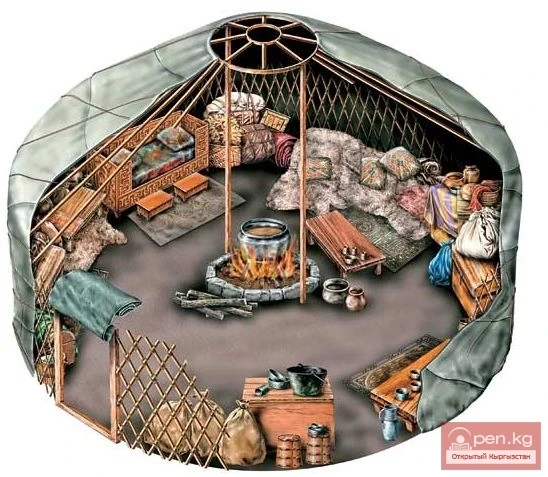
The Culture of the Kyrgyz in the 6th—18th Centuries
The ancient Turkic nomads who inhabited the territory of Kyrgyzstan left behind unique monuments —...
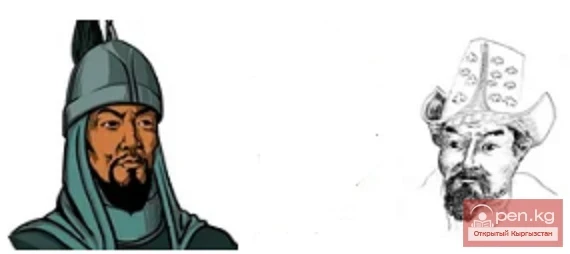
The Entry of Kyrgyz into the Political Arena in Moghulistan
Said-Khan Against Muhammad-Kyrgyz In the early 16th century, the Kyrgyz entered the political...
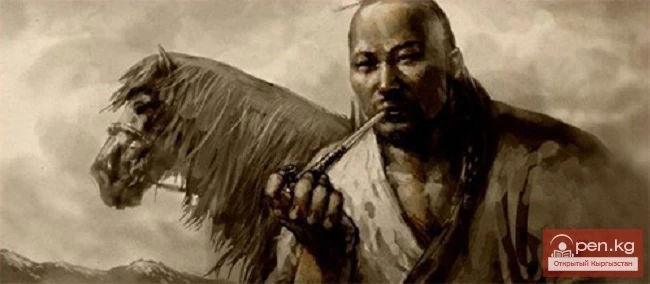
"Progenitor" of the Kyrgyz Ethnicity of the 12th Century
Ibrahim ibn Ahmed and Anal-Hakk Thus, the "progenitor" of the Kyrgyz ethnicity of the...
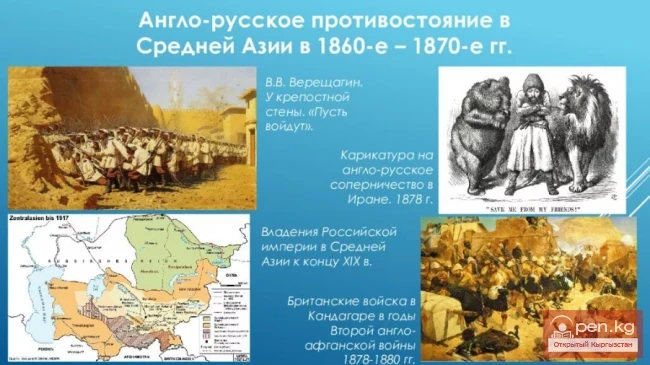
The Struggle of the Russian Empire and Britain for Central Asia
A New Surge of Anglo-Russian Rivalry in Central Asia was associated with the Russian conquest of...
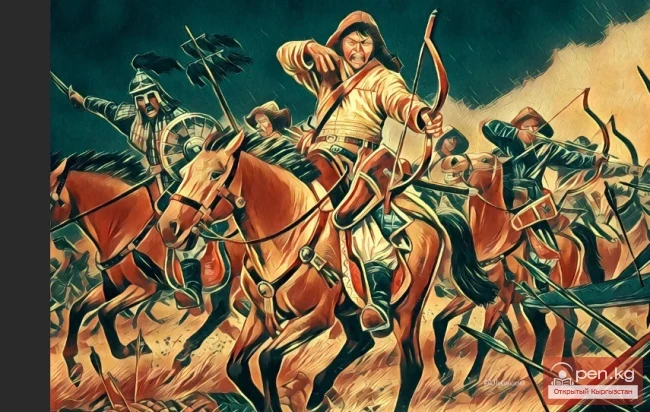
"Conflicts of Abdallah with the Kyrgyz"
Abdallah's Campaigns Against Neighboring Countries While Abdallah's predecessors fought...
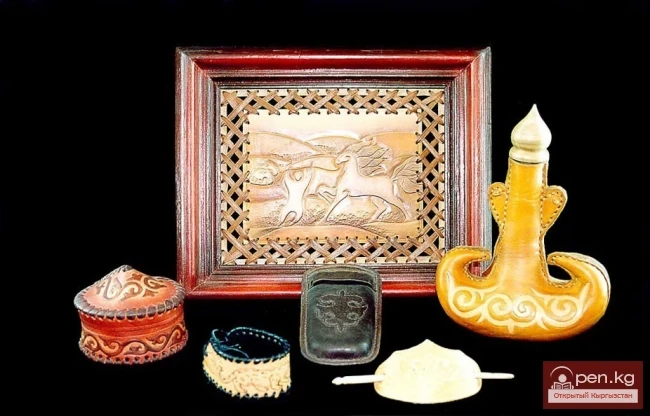
Ethnic Origins and Stages of Formation of the Kyrgyz Nationality
The formation of the Kyrgyz people is connected with ethnic processes in ancient and medieval...
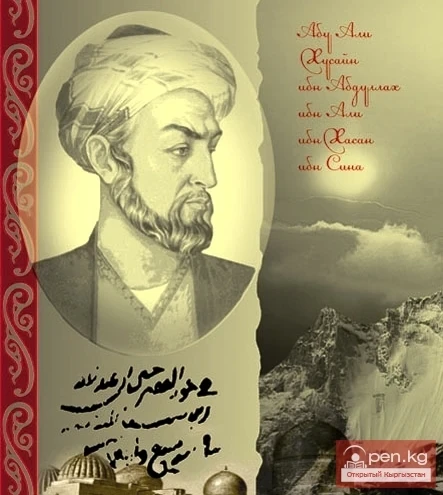
The Education of Kyrgyz in the 6th to 18th Centuries
The Karakhanid period, as the apex of Turkic civilization, was a time when science and education...
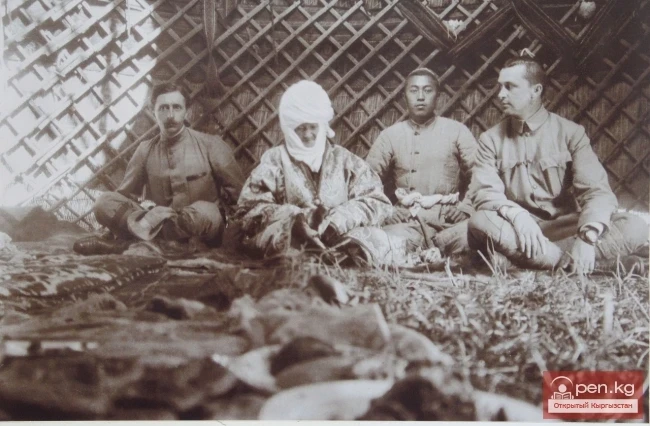
Foreign Policy of the Kyrgyz in the 18th - Early 20th Century
During the period in question, Kyrgyzstan was unable to conduct any foreign policy. However,...
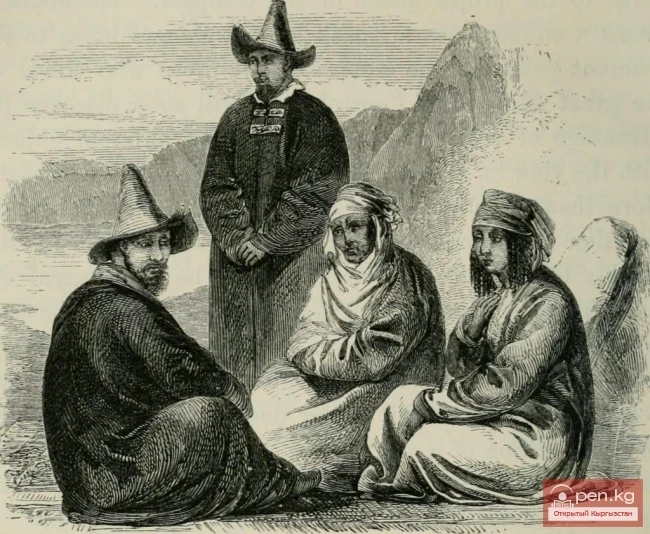
Kyrgyz of the 19th Century in the Sketches of a British Traveler
Writer Thomas Witlam Atkinson traveled through Central Asia in the mid-19th century. Throughout...
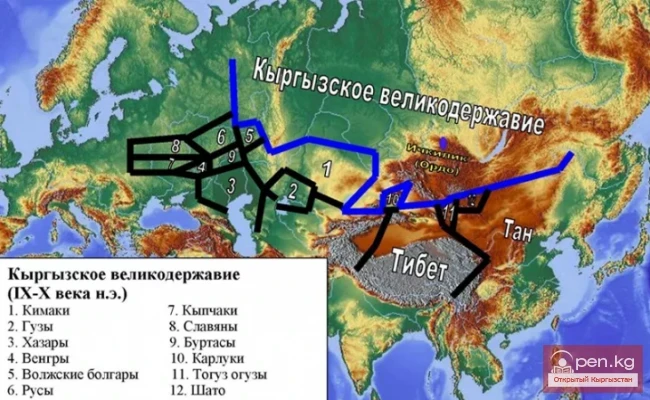
The Era of "Kyrgyz Great Power"
The Flourishing of Medieval Kyrgyz Culture The era of "Kyrgyz Great Power" became a time...

"Central Asian" Kyrgyz Nomads
Ulus Inga-Tyuri During military clashes, it appears that part of the "Central Asian"...
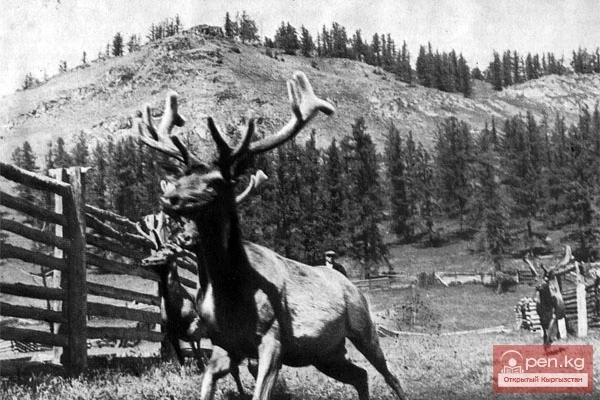
Natural Resources of the Kyrgyz in the 6th—18th Centuries
The territory of medieval Kyrgyzstan was home to numerous plant species, many of which are...
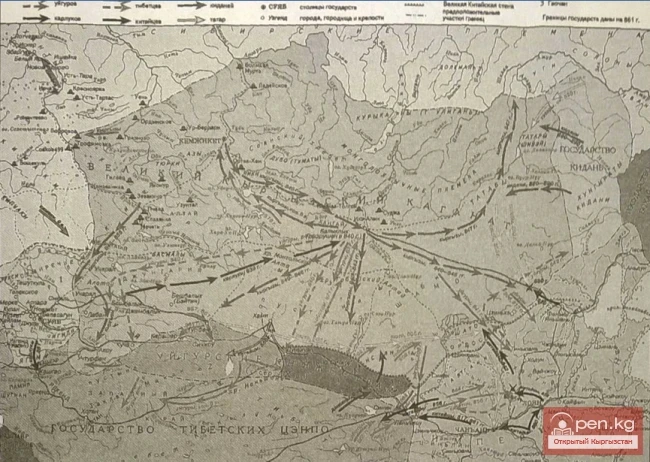
Kyrgyz Khaganate: The Leading Nomadic State in Central Asia from the Mid-9th to the First Quarter of the 10th Century
Kyrgyz Great Power During the VI-VIII centuries, when the Kyrgyz state existed only in the...
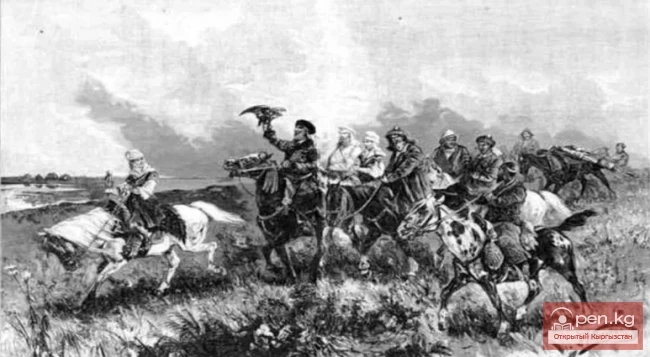
Events of the Second Half of the 18th Century in Southern Kyrgyzstan
Events 200 Years Ago Let’s return to the events of 200 years ago. What was Osh primarily for the...

The Underwater City of Lake Issyk-Kul
Secret places of the planet. The Kyrgyz are one of the oldest peoples of Central Asia. They...
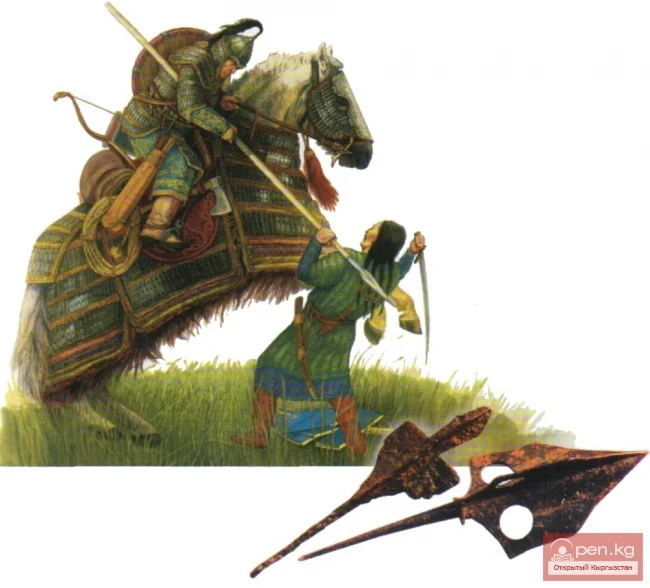
Kyrgyz in the Mongolian Period
Usy, Han-Hena, and Yilanzhou In the "Yuan-Shi," in relation to the land of the Kyrgyz,...
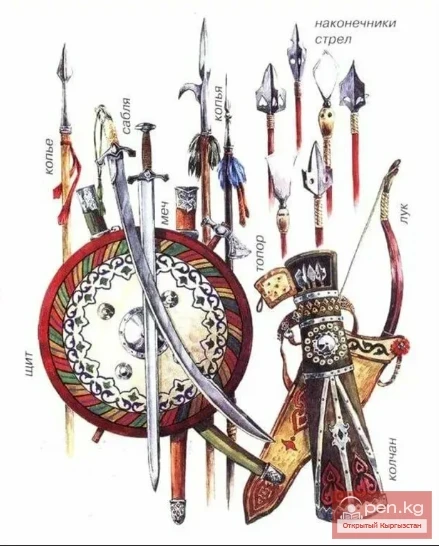
Weapons of the Medieval Nomads of Kyrgyzstan
Sarybulak Spear The set of arrows from the Mongolian period looks significantly different. In...
